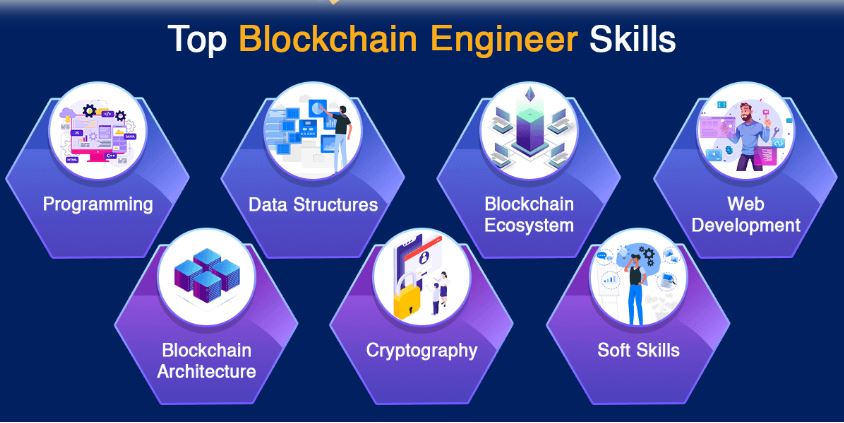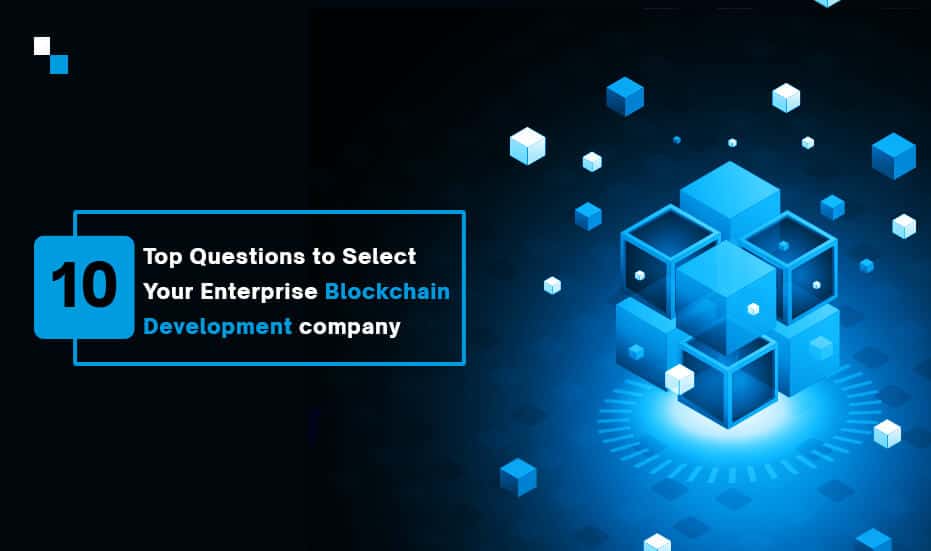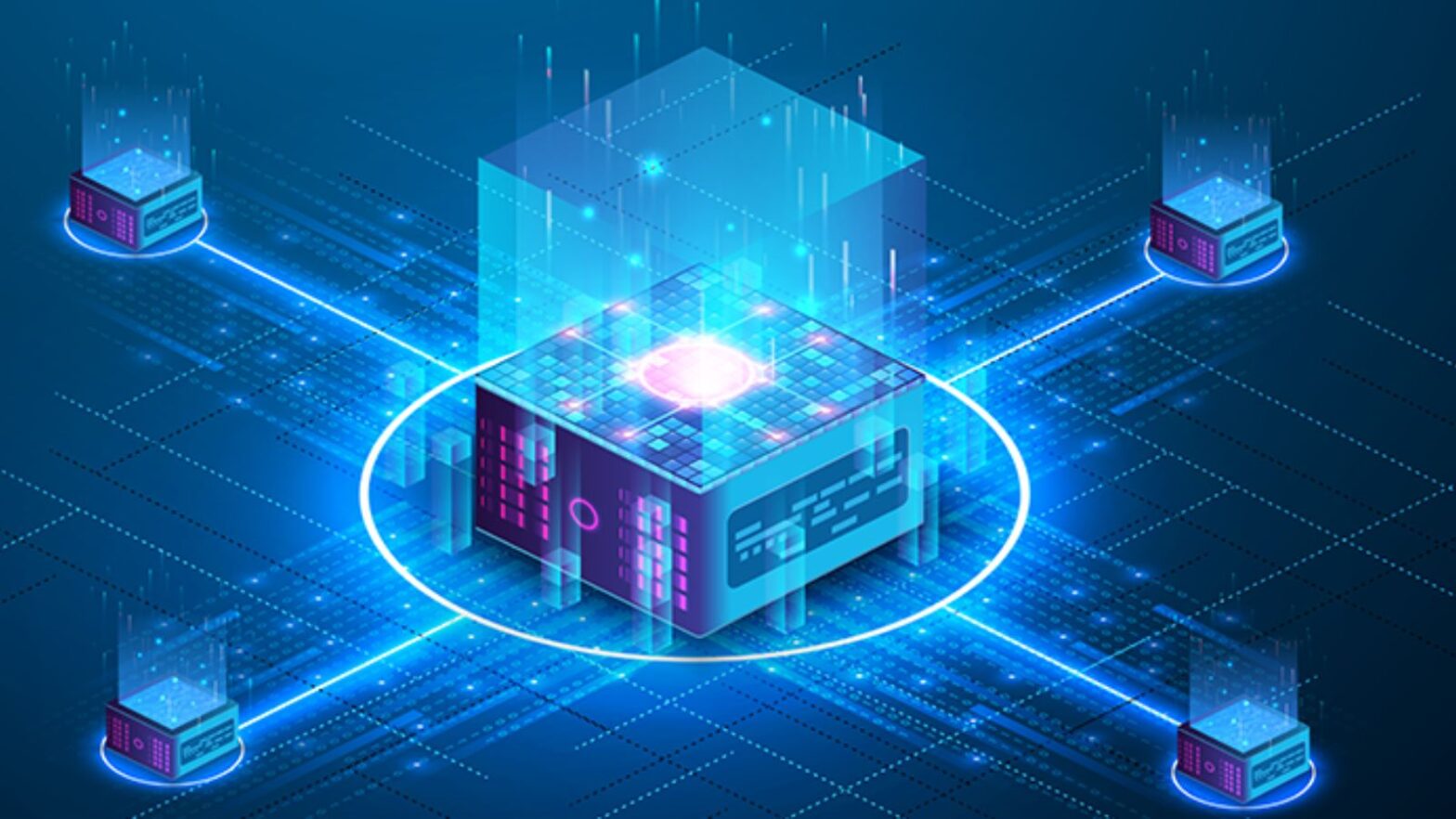Ever thought of blockchain software development outsourcing? Or, are you running a startup and looking to hire blockchain developers? It is high time you hired an offshore hybrid blockchain developer.
The blockchain technology is transforming how businesses manage data and transactions. Companies now want solutions that deliver both privacy and transparency.
Hybrid blockchains achieve this balance by combining features of both public and private blockchains. Before hiring an offshore hybrid blockchain developer, it’s important to understand why these systems matter and how they work.
Read: What Are the Best Trading Hours for Cryptocurrency?
What is a Hybrid Blockchain and Why Choose It?

A hybrid blockchain blends the benefits of public and private systems. It delivers security, transparency, and flexibility in one solution. So, before you hire an offshore hybrid blockchain developer, you need to understand why this model is important.
Understanding Hybrid Blockchain Architecture
A hybrid blockchain combines the strengths of public and private blockchains. It provides both control and transparency. Businesses use it to keep sensitive data private while allowing selective public access. This dual approach ensures compliance and trust.
The architecture uses permissioned layers for confidential information and public layers for verifiable records. Companies gain full flexibility in managing access. This model supports industries like finance, healthcare, and supply chain, where privacy and transparency are critical.
Hybrid blockchain development services allow businesses to integrate with existing systems. They offer customizable features and layered security protocols. This makes adoption easier for organizations moving from traditional systems.
Another advantage is scalability. Hybrid blockchains efficiently process large volumes of transactions. They avoid congestion issues common in public blockchains. For enterprises, this balance means speed without sacrificing security or privacy.
Integration is also seamless. Hybrid blockchain development supports interoperability with multiple platforms. This adaptability is why companies increasingly demand custom hybrid blockchain development solutions from experts.
Public vs Private vs Hybrid Blockchain
Public blockchains are open to everyone. They offer full transparency and decentralization. Anyone can participate and validate transactions. However, they have slower speeds and higher costs.
Private blockchains restrict participation to authorized users. They deliver speed and privacy but lack open verification. This creates trust concerns in multi-party environments. Businesses use private systems mainly for internal operations.
A hybrid blockchain combines the best of both. It gives businesses control over private data while enabling selective transparency. Sensitive information remains secure, while certain processes remain open for verification.
Choosing the right model depends on business goals.
Use public blockchains for maximum transparency. Choose private blockchains for full control and security. Pick hybrid blockchains for a balanced solution combining privacy and openness.
Many companies now seek blockchain outsourcing services to implement hybrid solutions. These services reduce costs and provide expert guidance on architecture and deployment.
Why Businesses Prefer Hybrid Solutions Today
Businesses choose hybrid blockchains because they deliver flexibility and security. Sensitive data stays private, while some transactions remain transparent. This approach is critical for sectors with strict compliance requirements.
Cost efficiency is another reason. Public blockchains often have high transaction fees. Private blockchains require expensive infrastructure. Hybrid blockchains reduce both costs while maintaining essential features.
Compliance plays a big role, too. Industries like finance and healthcare face strict regulations. A hybrid blockchain developer offshore can help create systems that meet legal standards without compromising confidentiality.
Hybrid blockchain development services also offer speed and scalability. They process more transactions than public blockchains while avoiding private chain limitations. This performance makes them suitable for enterprise-level applications.
Finally, businesses see hybrid blockchain solutions as future-ready, making it a prudent move to hire blockchain developer. They offer adaptability for evolving regulations and growing customer expectations. This makes them the preferred choice for long-term strategies.
Why Hire an Offshore Hybrid Blockchain Developer
Hiring an offshore hybrid blockchain developer helps businesses reduce costs and access global talent. Companies also gain specialized expertise in hybrid blockchain development services. This approach improves scalability, compliance, and project delivery efficiency.
Cost Benefits Compared to Onshore Development
Hiring an offshore hybrid blockchain developer is more affordable than hiring locally. Offshore teams usually charge lower rates. Businesses save significantly on salaries, infrastructure, and benefits. This cost reduction is crucial for startups and growing companies.
Offshore developers often work on project-based or dedicated team models. This flexibility allows companies to manage budgets effectively. Unlike in-house teams, you pay only for work delivered. There are no hidden employment costs.
Lower costs do not mean lower quality. Offshore developers are highly skilled and experienced. They deliver enterprise hybrid blockchain solutions at competitive rates. Many countries have strong tech ecosystems producing world-class blockchain experts.
Offshore hiring also helps avoid heavy investments in office space, software, and other equipment. Businesses can focus resources on core operations. This model maximizes ROI without sacrificing quality or project control.
Access to Global Talent and Niche Expertise
When you hire an offshore blockchain development company, you gain access to top talent worldwide. These developers specialize in custom hybrid blockchain development and advanced technologies. They have expertise in Hyperledger, Ethereum, and Corda frameworks.
Many offshore teams work with multiple industries. This exposure gives them insights into various compliance and security standards. They can design solutions tailored to your business needs.
Offshore experts often have certifications in blockchain architecture and smart contract development.
Some offshore hybrid blockchain developers also provide end-to-end services. They handle architecture design, development, deployment, and maintenance. This eliminates the need to hire multiple vendors for different tasks.
Hiring globally ensures you find the exact skill set your project requires. Local markets may lack experienced hybrid developers. Offshore teams bridge this gap effectively.
Offshore Development Risks and How to Mitigate Them
Working with an offshore hybrid blockchain developer comes with risks. Time zone differences can affect communication. Cultural differences may cause misunderstandings in project expectations. You must address these challenges from the start.
Security is another concern. Sharing sensitive data with an external team requires strict measures. Always sign NDAs and ensure the vendor follows strong security protocols. Compliance with GDPR and other regulations should be mandatory.
Quality control is critical. Some companies face issues with poor code or missed deadlines. To avoid this, check the developer’s portfolio and client reviews. Use milestone-based payments for accountability.
Finally, communication tools and management practices matter. Use platforms like Slack, Jira, and Zoom for regular updates. Clear documentation and frequent meetings keep projects on track. Offshore risks are manageable with proper planning.
Key Skills of an Offshore Hybrid Blockchain Developer

Before hiring an offshore hybrid blockchain developer, you must assess technical and strategic skills. These skills ensure efficient project execution and compliance with industry standards. A capable developer delivers security, scalability, and innovation.
Proficiency in Smart Contracts and Consensus Mechanisms
Smart contracts are essential for hybrid blockchain development services. They automate processes and reduce human errors. A skilled developer must know how to create secure and efficient contracts. This ensures trust and eliminates disputes in transactions.
Understanding consensus mechanisms is equally important. These protocols maintain network security and integrity.
Developers should master methods like Proof of Authority, Proof of Stake, and Practical Byzantine Fault Tolerance. These are often used in enterprise hybrid blockchain solutions.
A competent offshore hybrid blockchain developer must ensure smart contracts are bug-free. They should also audit code for vulnerabilities. This reduces the risk of hacks and exploits. Security must always be a top priority.
Consensus and automation skills allow developers to build fast, reliable networks. Businesses benefit from improved performance and reduced operational costs. These capabilities make projects scalable and future-proof.
Knowledge of Public & Private Blockchain Frameworks (Hyperledger, Ethereum, Corda)
A strong offshore blockchain development company employs developers skilled in multiple frameworks. Hyperledger is widely used for permissioned enterprise solutions. Ethereum powers decentralized applications and smart contracts. Corda supports regulated industries like finance and banking.
Hybrid blockchains often integrate multiple frameworks. Developers must understand interoperability between these platforms. They should also be able to customize features for unique business requirements. This adaptability ensures efficient system performance.
Framework expertise helps businesses choose the right tools for their goals. Some industries prioritize speed, while others value privacy. A skilled developer recommends solutions aligned with these needs.
Developers should also follow updates from blockchain communities. Frameworks evolve rapidly. Continuous learning ensures your project uses the latest, most secure technology.
Security and Compliance Awareness for Hybrid Networks
Security is non-negotiable in hybrid blockchain development. Developers must implement encryption, secure key management, and access controls. They should also protect networks from cyberattacks and data breaches.
Compliance is equally important. Industries like finance and healthcare face strict regulations. A developer must understand GDPR, HIPAA, and other laws. This ensures legal and ethical system design.
Regular audits and penetration testing are critical. These practices identify weaknesses before attackers exploit them. A responsible developer includes these in the development process.
Security awareness builds trust with clients and regulators. It also prevents costly data breaches. This skill separates average developers from top-tier offshore hybrid blockchain developers.
Steps to Hire the Right Offshore Hybrid Blockchain Developer

Finding the right offshore hybrid blockchain developer requires a clear hiring strategy. Companies should evaluate technical skills, communication, and cultural compatibility. Following structured steps reduces risks and ensures project success.
Define Your Project Scope and Goals
Before hiring, businesses must outline their goals. Identify what your hybrid blockchain development services should achieve. Determine whether you require a custom solution or a ready-made framework.
The project scope encompasses the number of nodes, smart contract requirements, and compliance regulations. Defining these early avoids confusion later. It also helps developers estimate time and cost accurately.
Clear objectives make it easier to choose the right expertise. For example, finance projects need strong security and compliance skills. Supply chain projects need features for tracking and transparency.
Document everything in detail. Share this information with your offshore blockchain development company. This ensures they fully understand your needs before starting the project.
Evaluate Technical Expertise and Portfolio
Always check a developer’s past projects. Review case studies and client testimonials. Experienced offshore hybrid blockchain developers have work samples showing real-world applications.
Assess their knowledge of public, private, and hybrid blockchains. They should also be proficient in smart contracts, consensus mechanisms, and frameworks like Hyperledger and Ethereum.
A strong portfolio includes projects in different industries. This demonstrates adaptability and problem-solving skills. Check for evidence of compliance and security implementation.
Ask for a technical interview or a coding test. This ensures they meet your performance standards. Do not rely on claims alone. Always verify technical competence before signing any agreement.
Check for Communication and Time Zone Compatibility
Communication is vital in offshore hybrid blockchain development. Misunderstandings can cause costly delays. Choose developers fluent in your language and comfortable with your tools.
Time zone differences can also create challenges. Select a team that offers overlapping working hours. This makes daily collaboration easier. Regular updates keep projects on track.
Use platforms like Slack, Zoom, and Jira for transparency. These tools help manage workflows and monitor progress effectively.
Clear communication builds trust. It also ensures that developers understand requirements correctly. This minimizes rework and speeds up delivery.
How Much Does it Cost to Hire Offshore Hybrid Blockchain Developers?
The cost of hiring an offshore hybrid blockchain developer varies based on several factors. These include project complexity, developer expertise, and the region you choose. Understanding pricing models helps businesses plan budgets effectively.
Pricing Models (Hourly vs Project-Based vs Dedicated Team)
Most offshore blockchain development companies offer three common pricing models. The first is hourly billing. This works well for short-term tasks or minor updates. Rates vary depending on experience and location.
The second model is project-based pricing. Businesses prefer this for fixed-scope projects. Costs are agreed upon before work begins. It offers predictability and control for companies with limited budgets.
The third model is hiring a dedicated team. This option suits large or long-term projects. You get full-time developers focused solely on your system. While it costs more, it ensures faster delivery and strong collaboration.
Choosing the right model depends on your goals and budget flexibility. For example, startups often prefer project-based models. Enterprises with complex systems usually choose dedicated teams for better scalability and support.
Factors Affecting Development Costs
Several factors influence the price of hybrid blockchain development services. The first is project complexity. Complex solutions require advanced frameworks and features, which increase costs.
The second factor is developer experience. Senior offshore hybrid blockchain developers charge higher rates but deliver better results. Paying for expertise often reduces risks and long-term expenses.
Location also matters. Developers in Asia generally charge less than those in Europe or North America. However, the quality of work remains high in many offshore regions.
Additional features like API integration, custom smart contracts, and compliance modules also raise costs. Before hiring, clarify all requirements to avoid hidden expenses.
Average Rates in Top Offshore Destinations
Rates differ across countries. Offshore hybrid blockchain developers in India typically charge between $25 and $50 per hour. Southeast Asia offers similar pricing with strong technical expertise.
Eastern Europe is slightly higher. Developers there often charge between $40 and $80 per hour. These regions are known for high-quality work and strong communication skills.
Latin America is another option. Rates range from $35 to $70 per hour. Businesses choose this region for time zone compatibility with the U.S.
While cost is important, do not compromise on quality. Choosing the cheapest option can lead to delays and poor performance.
Balance pricing with experience for the best results.
Top Destinations to Find Offshore Hybrid Blockchain Developers

The United States has a high demand for offshore hybrid blockchain developers. Many businesses look abroad for cost-effective and skilled professionals.
Knowing the best regions helps companies choose reliable partners for hybrid blockchain development services.
India
India is a leading destination for offshore blockchain development companies. The country offers a large pool of skilled developers. Many are trained in custom hybrid blockchain development and enterprise solutions.
Costs are competitive. Rates range from $25 to $50 per hour, which is much lower than U.S. costs. Despite the lower price, quality remains strong. Developers are proficient in Ethereum, Hyperledger, and other major frameworks.
India also provides excellent English communication skills. This makes collaboration easier for U.S. businesses. Time zone differences can be managed using overlapping hours and proper tools.
Many companies in India follow international standards like ISO and GDPR compliance. This ensures security and data protection for U.S. clients.
Eastern Europe
Eastern Europe is another popular choice for offshore hybrid blockchain developers. Countries like Ukraine, Poland, and Romania have strong tech ecosystems. Developers here have advanced skills and experience in global projects.
Rates range from $40 to $80 per hour. This is higher than Asia but still cheaper than U.S. developers. Eastern Europe offers excellent quality and strong cultural alignment with Western businesses.
Developers in this region are known for innovative problem-solving. They have deep expertise in enterprise hybrid blockchain solutions.
Their knowledge of regulations and compliance is strong, which suits industries like finance and healthcare.
English proficiency is high, and the time zone overlap with the U.S. is better than in Asia. This makes communication easier and faster.
Southeast Asia
Southeast Asia, including countries like Vietnam and the Philippines, is growing as a hub for blockchain outsourcing services. Developers here are skilled in smart contracts, consensus mechanisms, and multi-chain integrations.
Rates are affordable, often similar to those developers charge in India. Businesses choose this region for cost savings and technical expertise. Many developers also specialize in building custom hybrid blockchain development solutions for startups and enterprises.
One advantage of Southeast Asia is its growing tech infrastructure. Many companies are adopting international quality standards and security protocols. This is important for U.S. businesses handling sensitive data.
Communication is improving as more developers gain fluency in English. Proper tools and scheduled meetings help overcome time zone challenges.
Blockchain Development Companies in UAE
The UAE has rapidly emerged as one of the leading hubs for blockchain adoption and innovation, thanks to its progressive government policies and investment in digital infrastructure.
Cities like Dubai and Abu Dhabi are actively fostering blockchain initiatives through programs such as the Dubai Blockchain Strategy, which aims to make the city the first to run entirely on blockchain by 2030.
This environment makes the UAE an attractive destination for hiring offshore hybrid blockchain developers.
Most blockchain development companies in the UAE specialize in enterprise-grade solutions, including DeFi platforms, tokenization, supply chain solutions, and hybrid blockchain architecture.
These companies often combine technical expertise with compliance knowledge, which is critical if your project involves financial transactions or regulated industries.
Why choose UAE-based developers?
- Regulatory Support: The UAE has favorable regulations for blockchain businesses, reducing legal friction for projects.
- High-Quality Talent: Many developers have strong experience in Ethereum, Hyperledger, Corda, and hybrid models.
- Innovation Ecosystem: The presence of incubators and accelerators ensures developers stay ahead of the curve.
Expected Costs
While UAE developers typically charge higher rates than India or Eastern Europe, the premium comes with top-notch compliance and high-end solutions.
Rates can range between $50–$100 per hour, depending on experience and complexity.
Best Use Cases for UAE Developers
- Enterprise Blockchain Solutions
- Government or Regulated Sector Projects
- Projects Requiring High Security and Legal Clarity
Best Practices for Managing Offshore Hybrid Blockchain Development

Managing offshore hybrid blockchain development projects requires precision and effective planning. Companies in the United States often rely on offshore teams for cost efficiency and access to global talent.
However, managing remote teams can create challenges in communication, security, and workflow transparency.
Adopting proven best practices helps organizations maintain control while ensuring quality. A structured approach reduces risks and boosts productivity for distributed teams. Below are three essential strategies for successful offshore hybrid blockchain development.
Use Agile and Scrum for Transparency
Agile methodology provides flexibility, making it ideal for offshore projects. It allows teams to adapt to changes quickly. Using Scrum frameworks promotes accountability and transparency among distributed members.
Daily stand-up meetings keep everyone informed about current tasks and issues. These meetings ensure alignment on hybrid blockchain goals despite time zone differences. Tools like Jira or Trello help track progress effectively.
Agile sprints divide large projects into manageable iterations. This approach reduces delays by detecting issues early. Continuous feedback loops improve product quality while ensuring client expectations are met.
Regular retrospectives help identify and resolve bottlenecks in the development cycle. They also encourage collaboration between onshore and offshore teams. By fostering open communication, businesses can reduce misunderstandings and delays.
Companies adopting Agile and Scrum often report higher productivity and better project visibility. This method works well for complex blockchain ecosystems that require frequent updates and changes.
Regular Communication and Reporting
Consistent communication is the backbone of offshore hybrid blockchain development. Clear reporting helps prevent delays and misunderstandings. U.S. companies must set structured communication protocols for remote teams.
Video conferencing tools like Zoom or Microsoft Teams create real-time collaboration opportunities. These platforms reduce cultural and time zone gaps. Project management systems like Slack or Asana ensure constant connectivity and message tracking.
Weekly progress reports keep stakeholders informed about milestones and timelines. Detailed reporting ensures compliance with U.S. blockchain regulations and client requirements. Transparency builds trust with offshore partners and prevents project derailment.
Regular check-ins help resolve minor issues before they escalate. Time zone differences require scheduling flexibility for all team members. A centralized communication strategy reduces errors and misalignments during complex development cycles.
Documentation is crucial for hybrid systems involving public and private blockchains. Clear documentation ensures future maintenance and smooth handovers between teams. Companies that prioritize reporting enjoy better control and predictable delivery.
Ensuring Security in Distributed Teams
Security is a top concern for hybrid blockchain solutions involving offshore teams. Sensitive data must remain protected throughout development. Strict access controls help safeguard intellectual property and financial transactions.
Use end-to-end encryption for communication and file sharing. This ensures critical information remains confidential. Multi-factor authentication (MFA) adds another layer of security for remote logins.
Implement role-based permissions to limit access to sensitive blockchain components. Not all developers should view or modify core protocols. Regular audits and compliance checks maintain security standards.
Adopt zero-trust security models for offshore teams handling private blockchain elements. Verify every access request, even within the internal network. Using secure coding practices prevents vulnerabilities from entering the system.
Educate offshore teams on cybersecurity best practices and data handling policies. Many breaches occur due to human error. Consistent training minimizes risks and improves overall compliance.
For U.S. companies, aligning with GDPR and CCPA is critical when handling customer data. Offshore vendors must follow these regulations strictly to avoid penalties and reputational damage.
Case Study: A Successful Offshore Hybrid Blockchain Project
To understand the real-world application of offshore hybrid blockchain development, let’s look at a case study of a U.S.-based fintech company that wanted to build a secure decentralized finance (DeFi) platform.
The Challenge
The company needed to combine on-chain transparency with off-chain scalability, and hiring locally in the U.S. was too expensive. They opted for a hybrid team model: a U.S.-based product management team and an offshore development team in Eastern Europe.
The Solution
Agile Methodology: They adopted Scrum to maintain transparency and speed. Daily stand-ups were scheduled at overlapping hours to bridge the time zone gap.
Security-First Approach: Implemented multi-signature wallets, role-based access control, and regular smart contract audits by third-party security firms in the U.S.
Regular Communication: Weekly progress reports and monthly sprint demos ensured accountability and alignment with the U.S. product vision.
The Outcome
The project was delivered 30% faster than the initial estimate, at 40% less cost compared to an all-U.S. team.
The platform successfully processed $150M in transactions within the first six months, thanks to a hybrid blockchain architecture that balanced performance and security.
Key Takeaway: A well-structured offshore hybrid blockchain strategy can significantly reduce costs and accelerate time-to-market without compromising security or compliance.
Questions to Ask Before Hiring an Offshore Blockchain Team

Before you sign any contract for offshore hybrid blockchain development, make sure you ask these critical questions to avoid costly mistakes:
1. What is your experience with hybrid blockchain projects?
Not all blockchain developers are familiar with hybrid blockchain architecture. Ask for portfolio examples, especially projects involving both public and private chains.
2. How do you handle security and compliance?
Your development partner should understand U.S. data privacy laws (e.g., CCPA) and implement secure key management, multi-factor authentication, and encryption standards.
3. What tools do you use for communication and project management?
Transparency is key when working with offshore teams. Look for teams that use Agile tools like Jira, Trello, or Asana and provide real-time updates.
4. How do you ensure time zone overlap for critical meetings?
Choose a partner who offers flexible work schedules or dedicated account managers to avoid communication delays.
5. Can you provide code samples or conduct a technical assessment?
Always request sample smart contracts or DApp code to evaluate their coding standards and security practices.
Pro Tip: Never skip a technical interview or a paid pilot project before committing to a long-term contract.
Comparison: Offshore vs Nearshore vs Onshore Developers
Choosing between offshore, nearshore, and onshore blockchain developers depends on budget, time zone preferences, and compliance needs. Here’s a quick comparison:
| Factor | Offshore (e.g., India, Eastern Europe) | Nearshore (e.g., Latin America) | Onshore (U.S.) |
| Cost | Lowest (50-70% savings) | Moderate (30-40% savings) | Highest |
| Time Zone | Large difference | Small difference | No difference |
| Compliance | Requires extra due diligence | Easier than offshore | Easiest |
| Talent Pool | Very large | Large | Smaller but high-quality |
| Best For | Startups, cost-sensitive projects | Mid-sized businesses | Regulated industries, sensitive data |
Summary:
- Offshore teams are ideal for cost efficiency and 24/7 development cycles, but require strong project management.
- Nearshore teams balance cost savings with communication convenience.
- Onshore teams provide top compliance and easy collaboration, but come at a premium cost.
Frequently Asked Questions (FAQs)
Q: What does an offshore hybrid blockchain developer do?
A: An offshore hybrid blockchain developer specializes in building and maintaining hybrid blockchain solutions, which combine the benefits of public and private blockchains. Their responsibilities include designing architecture, developing smart contracts, integrating APIs, and ensuring security protocols are in place. By working offshore, these developers deliver cost-effective solutions without compromising on quality, often using Agile and DevOps practices to align with U.S. business needs.
Q: Is offshore blockchain development safe?
A: Yes, offshore blockchain development can be safe—if proper security measures and vetting processes are followed. The main risks are related to data security, intellectual property protection, and compliance. To mitigate these, choose a development partner with strong NDAs (Non-Disclosure Agreements), ISO-certified security protocols, and compliance with GDPR or U.S. data regulations. Regular code audits and blockchain security testing should also be part of the process to minimize vulnerabilities.
Q: How much does it cost to hire a hybrid blockchain developer offshore?
A: The cost varies depending on the location, experience level, and complexity of the project. On average, offshore hybrid blockchain developers charge:
- India & Southeast Asia: $30–$60/hour
- Eastern Europe: $50–$90/hour
- Latin America: $40–$80/hour
Compared to U.S. rates (which range from $120–$200/hour), offshore development offers significant savings while still providing access to highly skilled developers.
Q: Which is better: in-house or offshore hybrid blockchain development?
A: It depends on your budget, timeline, and project complexity:
- In-house teams are ideal for projects requiring full control, frequent collaboration, and on-site security compliance—but they come at a high cost.
- Offshore teams offer affordability, a global talent pool, and 24/7 development cycles, but require strong project management to ensure alignment with your business goals.
Many U.S. companies adopt a hybrid model—keeping core tasks in-house and outsourcing specialized blockchain components offshore.
Q: What are the top platforms for hybrid blockchain?
A: Several leading platforms support hybrid blockchain development:
- Hyperledger Fabric – Popular for enterprise-grade private and hybrid solutions.
- Quorum – An Ethereum-based platform tailored for financial services.
- Corda – Used extensively in banking and trade finance.
- Dragonchain – A U.S.-based platform ideal for businesses seeking scalability and compliance.
- IBM Blockchain – Enterprise-level blockchain-as-a-service offering hybrid models.
These platforms allow businesses to combine public transparency with private control, making them a top choice for U.S. organizations.
Making the Right Choice for Offshore Hybrid Blockchain Development
Hiring an offshore hybrid blockchain developer can unlock massive opportunities for innovation, cost savings, and scalability—but only if you approach it strategically.
Before you leap, focus on a few critical factors: technical expertise in both public and private blockchain platforms, strong cybersecurity practices, and a proven track record with real-world projects.
Look for developers who understand compliance requirements in your industry and can integrate blockchain solutions with your existing systems seamlessly.
In terms of budget, expect to invest $35–$70 per hour for skilled offshore hybrid blockchain developers, depending on their experience and the region you’re sourcing from.
Complex enterprise-grade projects with smart contract integration, tokenization, and multi-layer architecture can run into the tens or even hundreds of thousands of dollars, so planning your finances early is crucial.
Finally, to ensure a smooth hiring process, create a detailed project scope, establish clear communication channels, and consider using Agile methodology to maintain transparency and flexibility throughout development.
By doing your due diligence and setting realistic expectations, you can secure a team that not only meets your technical needs but also drives long-term success for your blockchain initiatives.

